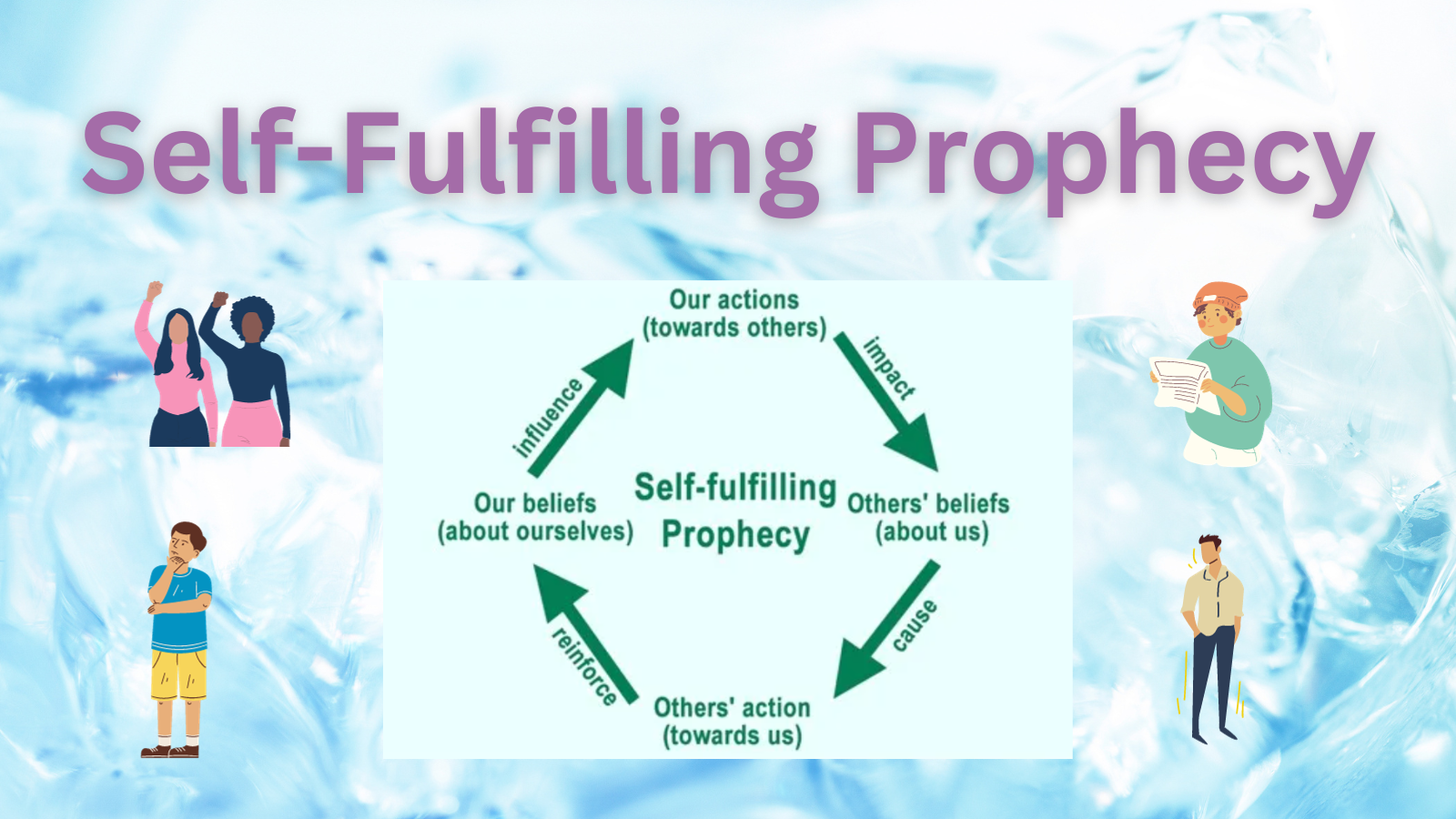Introduction
The human mind is a complex web of thoughts, emotions, and perceptions that shape our experiences and interactions with the world. One fascinating phenomenon that psychologists have studied extensively is the self-fulfilling prophecy. In this article, we will delve into the intricacies of this psychological concept. We explore its definition, underlying mechanisms, and the profound impact it can have on our lives.
What is the Self-Fulfilling Prophecy?
At its core, the self-fulfilling prophecy is a psychological phenomenon. It’s where a person’s belief or expectation about a future event influences their behaviour in a way that makes the outcome more likely to occur. In simpler terms, what we think or anticipate has the power to shape our reality.
The concept was first introduced by sociologist Robert K. Merton in 1948, who described it as “a false definition of the situation evoking a new behaviour which makes the originally false conception come true.” This definition highlights the cyclical nature of the self-fulfilling prophecy. When beliefs lead to behaviours that, in turn, confirm those initial beliefs.
Examples of the Self-Fulfilling Prophecy
- Academic Achievement
One classic example of the self-fulfilling prophecy can be observed in the realm of education. Imagine a student who is consistently told by teachers and parents that they are not academically gifted. They are likely to struggle in school. When internalizing this belief, the student may develop low self-esteem and adopt behaviours that align with the perceived lack of academic ability.
Consequently, the student may become disengaged in class. Threy avoid seeking help when faced with challenges and put minimal effort into their studies. As a result, their academic performance may indeed suffer. So fulfilling the initial prophecy that they are not capable of excelling in school.
- Relationships
In the context of relationships, the self-fulfilling prophecy can manifest in various ways. Consider a person who harbours a deep-seated fear of abandonment due to past experiences. This individual may enter a new relationship with the expectation that their partner will eventually leave them.
In response to this belief, they may exhibit behaviours such as clinginess, jealousy, or emotional withdrawal. They inadvertently push their partner away. The partner, feeling overwhelmed or suffocated, may eventually end the relationship. confirming the initial fear of abandonment and perpetuating the self-fulfilling prophecy.
- Job Performance
In the professional sphere, the self-fulfilling prophecy can significantly impact job performance. Imagine an employee who is constantly overlooked for promotions and challenging assignments, despite possessing the skills and qualifications necessary for advancement. If the employee internalizes the belief that they are not valued or capable of higher-level tasks, their motivation and engagement at work may decline.
This diminished performance may reinforce the perception held by superiors that the employee is not suitable for more significant responsibilities, thus perpetuating a cycle of missed opportunities and unfulfilled potential.
In this article I share my main belief When one door closes another door opens.
Loren Keeling. Author of Post-Separation Abuse. Betrayal and Abandonment, What Type Of Man?
“Why does life seem so complicated? One minute you feel that everything is going just great and all is well with the world. Then WHAM, something happens that completely throws a spanner in the works so to speak.”
Psychological Mechanisms at Play
To understand the self-fulfilling prophecy more deeply, it’s essential to explore the psychological mechanisms that drive this phenomenon. Several key factors contribute to the cycle of belief, behaviour, and outcome:
- Confirmation Bias
Confirmation bias is a cognitive phenomenon where individuals tend to interpret, favour, and remember information that confirms their preexisting beliefs. In the context of the self-fulfilling prophecy, people may subconsciously seek out or give more weight to evidence that aligns with their expectations, further solidifying their beliefs.
- Behavioural Confirmation
Behavioural confirmation occurs when individuals, consciously or unconsciously, elicit behaviours from others that confirm their beliefs or expectations. In the academic example mentioned earlier, if teachers and peers treat a student as if they are not academically inclined, the student may internalize this treatment and behave in a way that aligns with the perceived lack of ability.
- Self-Sabotage
Self-sabotage refers to the behaviours or actions individuals engage in that undermine their own success or well-being. In the context of the self-fulfilling prophecy, individuals may engage in self-sabotaging behaviours that align with their negative beliefs about themselves, contributing to the fulfilment of those beliefs.
Breaking the Cycle: Overcoming Self-Fulfilling Prophecies
While the self-fulfilling prophecy can have powerful and detrimental effects, it is not an inevitable force. Awareness, self-reflection, and intentional efforts can help individuals break free from the cycle and create positive outcomes. Here are some strategies to overcome self-fulfilling prophecies:
- Self-Awareness
The first step in overcoming the self-fulfilling prophecy is cultivating self-awareness. Individuals must reflect on their beliefs, acknowledging any negative or limiting thoughts that may be influencing their behaviour. This awareness lays the foundation for positive change.
- Cognitive Restructuring
Cognitive restructuring involves challenging and changing negative thought patterns. By consciously identifying and challenging irrational or unhelpful beliefs, individuals can replace them with more realistic and positive perspectives. This process may involve seeking the support of a therapist or practising self-help techniques.
- Positive Visualization
Positive visualization is a technique where individuals mentally rehearse successful outcomes and envision themselves achieving their goals. By focusing on positive scenarios, individuals can reshape their beliefs and create a mental environment that fosters success.
- Surrounding Oneself with Positivity
Creating a supportive and positive environment is crucial in overcoming self-fulfilling prophecies. Surrounding oneself with encouraging friends, mentors, and colleagues can provide the necessary emotional and practical support to challenge negative beliefs and behaviours.
Conclusion
The self-fulfilling prophecy is a powerful psychological concept that highlights the interconnectedness of belief, behaviour, and outcome. It serves as a reminder of the profound impact our thoughts and expectations can have on our experiences and achievements. By understanding the mechanisms at play and actively working to reshape negative beliefs, individuals can break free from the cycle and create a more positive and fulfilling reality. The journey toward overcoming self-fulfilling prophecies begins with self-awareness, continues with intentional cognitive restructuring, and flourishes in a nurturing and positive environment. Ultimately, we have the power to shape our destinies by cultivating a mindset that aligns with our true potential and aspirations.


